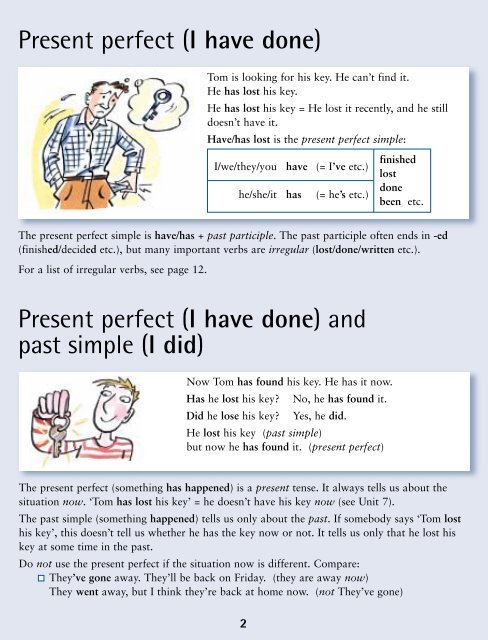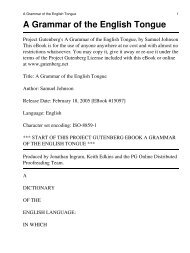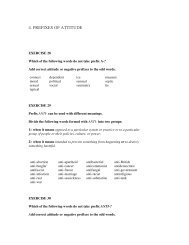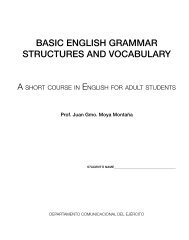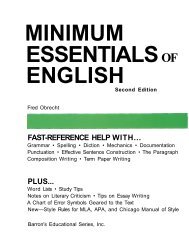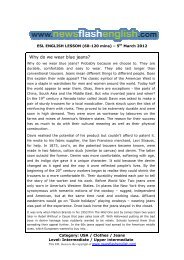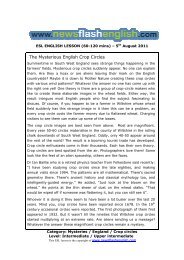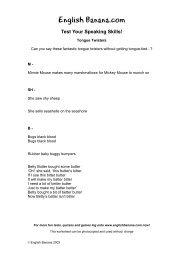English Grammar in Use
English Grammar in Use
English Grammar in Use
You also want an ePaper? Increase the reach of your titles
YUMPU automatically turns print PDFs into web optimized ePapers that Google loves.
Present perfect (I have done)Tom is look<strong>in</strong>g for his key. He can’t f<strong>in</strong>d it.He has lost his key.He has lost his key = He lost it recently, and he stilldoesn’t have it.Have/has lost is the present perfect simple:I/we/they/you have (= I’ve etc.)he/she/it has (= he’s etc.)f<strong>in</strong>ishedlostdonebeen etc.The present perfect simple is have/has + past participle. The past participle often ends <strong>in</strong> -ed(f<strong>in</strong>ished/decided etc.), but many important verbs are irregular (lost/done/written etc.).For a list of irregular verbs, see page 12.Present perfect (I have done) andpast simple (I did)Now Tom has found his key. He has it now.Has he lost his key? No, he has found it.Did he lose his key? Yes, he did.He lost his key (past simple)but now he has found it. (present perfect)The present perfect (someth<strong>in</strong>g has happened) is a present tense. It always tells us about thesituation now. ‘Tom has lost his key’ = he doesn’t have his key now (see Unit 7).The past simple (someth<strong>in</strong>g happened) tells us only about the past. If somebody says ‘Tom losthis key’, this doesn’t tell us whether he has the key now or not. It tells us only that he lost hiskey at some time <strong>in</strong> the past.Do not use the present perfect if the situation now is different. Compare:They’ve gone away. They’ll be back on Friday. (they are away now)They went away, but I th<strong>in</strong>k they’re back at home now. (not They’ve gone)2


